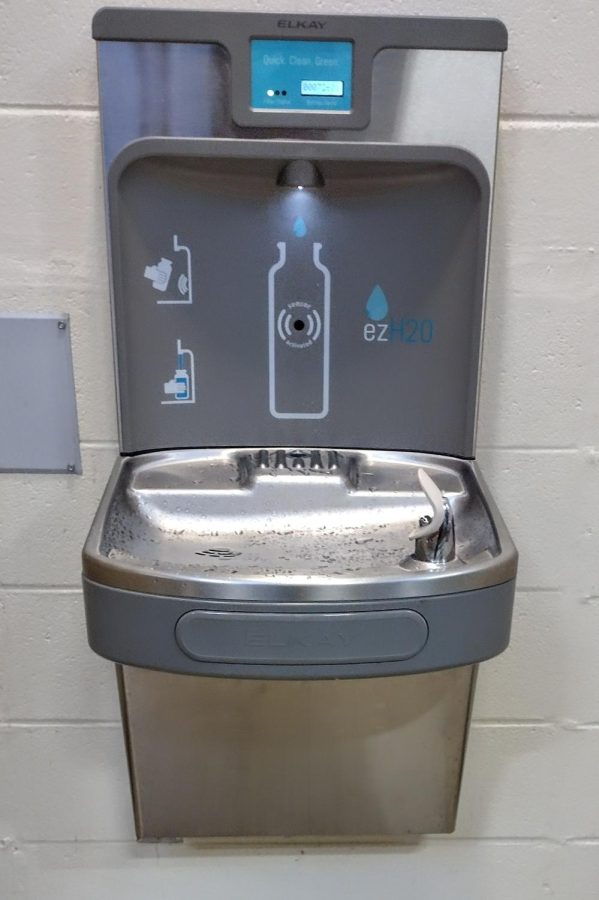Students see opportunities to make school more eco-friendly
Photo courtesy of: Ajaahn Singh
One of the water fountains installed in the school that encourages students to refill their water bottles and reduce single-use plastics.
March 23, 2022
Food waste is a problem all over the world. Most ends up in landfills and decomposes releasing methane emissions into the atmosphere. Junior Samyuktha Pemmasani, a member of the school’s Environmental Club, identified food waste as one of the biggest environmental issues at the school.
“I feel that the human population has treated the environment unfairly. Instead of nurturing the health of our planet, we destroy the very land that gives us life,” Pemmasani said.
She is not alone in her concern for the environment.
“Although some of the classrooms in our school have recycling bins, I think that making sure that every one of them has one could be beneficial overall, even if it is just a minor thing,” sophomore Sahel Singh said.
Pemmasani has always been interested in sustainability and promoting sustainable lifestyles. She also believes teaching young adults is a pivotal step in creating a world of sustainability. Her interest led her to reinstate the Environmental Club this school year, which has been inactive for two years.
In the future, the club hopes to create a bi-monthly newsletter covering local and global environmental issues.
“The goal is to raise awareness of the adverse effects of anthropogenic activities on our environment and hopefully encourage the student body to take steps towards securing the health of our planet in the future,” Pemmasani said.
Beyond just the school, food waste is a significant issue in the United States. The United States Department of Agriculture estimates that over one third of food produced is wasted annually. Food that is wasted and eventually ends up in landfills and produce a harmful amount of methane gas.
Deep Run has put some eco-friendly strategies in place, such as the water fountains that allow you to refill your reusable water bottle in order to avoid single use plastic. But there is always more to be done, and according to the Minnesota Pollution Control Agency, 50 percent of school waste could be managed through organic composting programs. Implementing such programs at Deep Run could ensure that the school is doing its part to reduce its environmental footprint.
The reinvigoration of the Environmental Club and the work they have planned will be important if Deep Run as a community wants to reduce its waste and make more of an effort to reduce its waste. Members hope other student ideas might spring from the issues discussed in the bi-monthly newsletter.
These conversations could also help the student body become more involved and take interest in what they can do to help.
“The goal is to raise awareness of the adverse effects of anthropogenic activities on our environment and hopefully encourage the student body to take steps towards securing the health of our planet in the future,” Pemmasani said
In the meantime, doing your own research on the environment can be a crucial step to empowering yourself to figure out what you’re willing to do or how you’re willing to change your habits to help the world around you.

